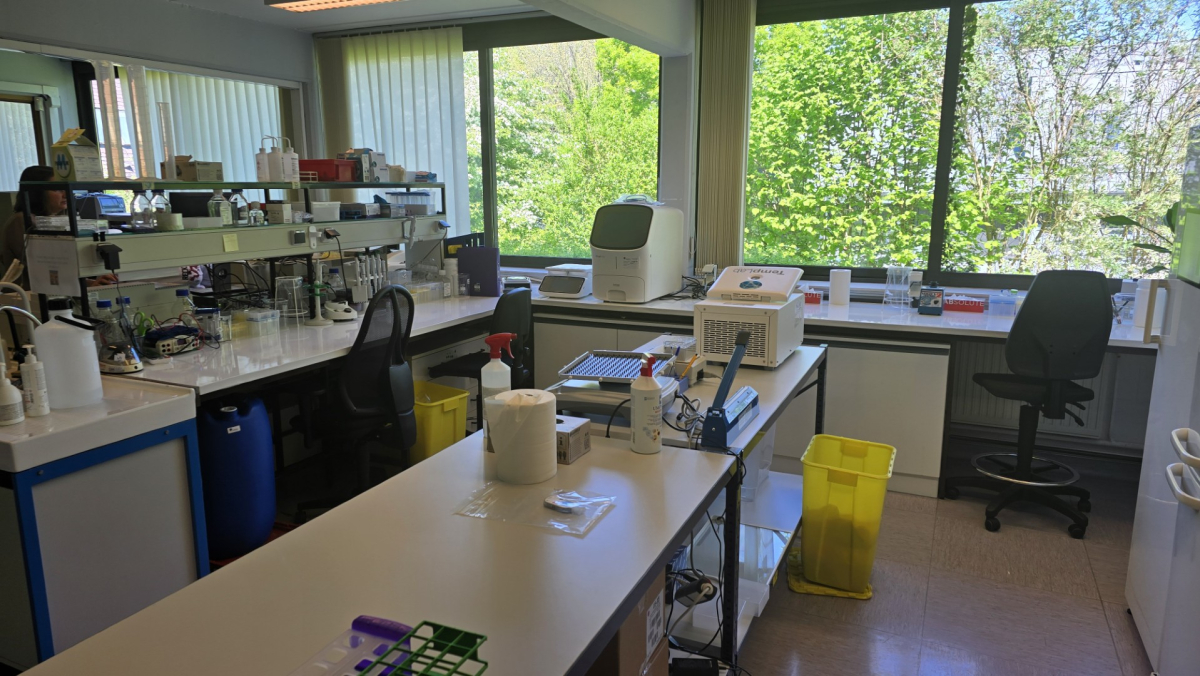
Sagitta Biotech is a Liège-based start-up active in the field of vaccination. The company has developed innovative vaccines to combat influenza, and hopes to eventually develop a vaccine against cancer. Discovery.
Wallonia is home to many well-known biotech companies. But the Walloon region also boasts a number of start-ups developing innovative technologies that deserve the spotlight. Among them, Sagitta Biotech will shortly be taking part in Bio Equity Europe, Europe's leading event for biotech investment and partnerships.
“Sagitta is a company that is a child of the Covid epidemic. Before Covid, the vaccine world was becoming routine. Pharmaceutical companies thought it was important, but not very profitable in terms of development. Then Covid came along, and we realized that there was a need for specific technologies to meet current and future needs in the field of vaccination. At that point, pharmaceutical companies realized that they had missed the boat, and managed to come back by teaming up with biotechs. Today, there is a desire to host vaccine platforms capable of meeting these future needs. In other words, they need to be able to respond very rapidly to an emerging disease. The aim is therefore to develop platforms that are flexible, that can tackle different types of disease, and that can be easily put into production to meet specific logistical requirements. With Sagitta, we're really looking at development from this angle,” explains Benjamin Damien, CEO of Sagitta Biotech. When he talks about platforms, he's referring to molecules that can be used to develop a vaccine.
In concrete terms, Sagitta Biotech has developed innovative “active virosomes” to meet unmet medical needs in the fields of infectious diseases and oncology. “It's something like a virus with all the machinery removed. It's a virus that can no longer reproduce itself, but is still capable of expressing antigens both in the bloodstream and in infected cells. Schematically, there are always two parts to an immune response. On the one hand, there's the humoral part, i.e. the police fighting against the virus in the bloodstream. On the other, the virus is able to hide in the cells. So the police must also be able to get to the hiding places and destroy the infected cells. This is the “cellular” response. Our virosome is capable of doing both. It follows the same routes as a real virus, except that it's not pathogenic and won't cause any negative effects as a real virus does”, explains our contact.

“Our aim is to design a production process that is consistent for all vaccines, whether Covid or Ebola. We're trying to get the production method validated, not just the product. We are currently developing a vaccine against both seasonal and pandemic influenza. We're starting with infectious diseases because that's a process where it's easier to demonstrate that it works. But the great hope for investors is to develop a cancer vaccine,” adds Benjamin Damien.
Sagitta Biotech has already achieved some convincing results. “We've shown in the animal model that the flu virus does what it's supposed to do. It generates an immune response, and immunized mice suffer no side effects and resist infection by the flu virus. Now we need to scale up to the human level, and that's why we're taking part in Bio Equity. It's to raise the funds to carry out a clinical study. This will be the first time this platform has been injected into humans. To do this, we need to raise between €15 and €20 million,” explains Sagitta Biotech's CEO.
Sagitta Biotech's strengths? The ability to deliver new, safe and effective vaccines in a matter of weeks. “Our platform can be adapted to any viral disease and turned into a vaccine. What's more, we can enable high productivity with low production costs. These are assets that will enable us to respond to pandemics, but also to the needs of low-income countries facing endemic diseases.”
As the vaccine world is a global market, Sagitta Biotech already has several contacts abroad. “We're lucky enough to be included in an American incubator, and we're one of the few non-American companies. This gives us a certain visibility,” adds Benjamin Damien.
In conclusion, Sagitta aims to offer a first-class platform for the development of vaccines for infectious diseases and oncology, thanks to its innovative "active virosome" platform.
Isabelle Anneet (AWEX)







